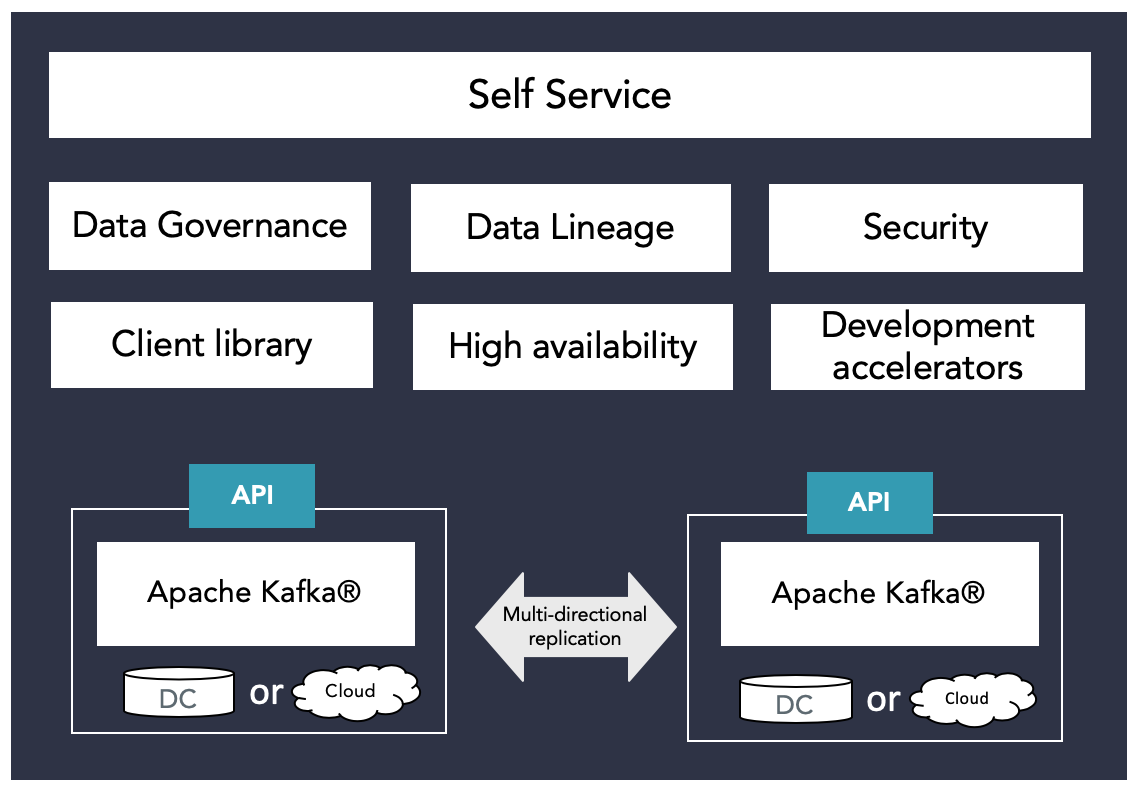Platform Reference
Platform Vision
When adopting, using, and growing a streaming platform, things might get complicated and messy quite soon. That is why our motto is "Streaming made simple." We want to remove the complexity of the streaming platform from you as an end-user, to allow you to focus on your customers and your business.
Introduction
A streaming platform is a central place within any organization responsible for capturing data streams and making them available to anyone authorized to access it. Axual Platform includes:
-
A solid, battle-tested, and proven basis, Apache Kafka®
-
A client library allowing you to build your producer, consumer or streaming application
-
Connectors, to hook up external systems to the platform, such as databases, messages queues, to the platform
-
A Self-Service interface, allowing for access control on and evolution of your organization’s data streams
-
Monitoring and logging capabilities

Platform Components
-
Axual Client: Java and .NET based client library used to start streaming easily, without worrying about reliability, security, or advanced configuration. Using Discovery API, you will always be connected to an active and healthy cluster. For details, check Axual Java Client reference documentation.
-
Axual Self-Service: Provides control over who is accessing your streams and for what purpose. Control your stream (topic) properties for indivisual environments, and get an overview of the streaming landscape inside your organization. For details, check Axual Self-Service reference documentation.
-
Distributor: Wherever you run your client application, the distributor will synchronize and distribute messages, offsets, and schemas between clusters.
-
Development accelerators: save time debugging your application by using our development accelerators, such as a dockerized Axual Platform or Axual ClientUnit for unit and integration testing.
-
Deployment tools: deploy the Axual Platform locally or on-premises, without worrying about a lot of configuration or preparation of your environment.
Check the Release Notes for recent release notes of our platform components.